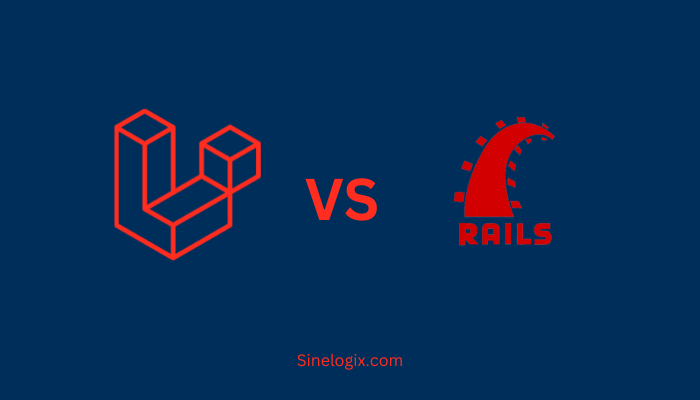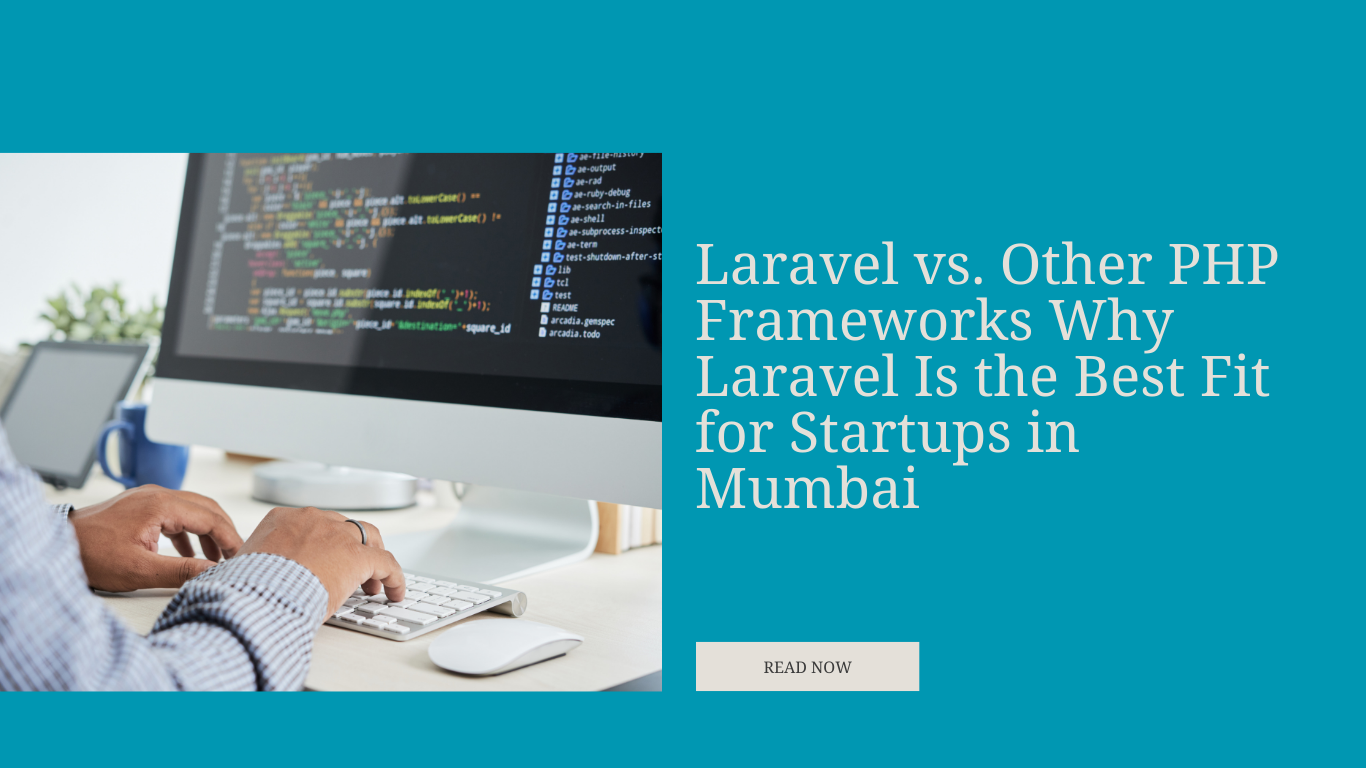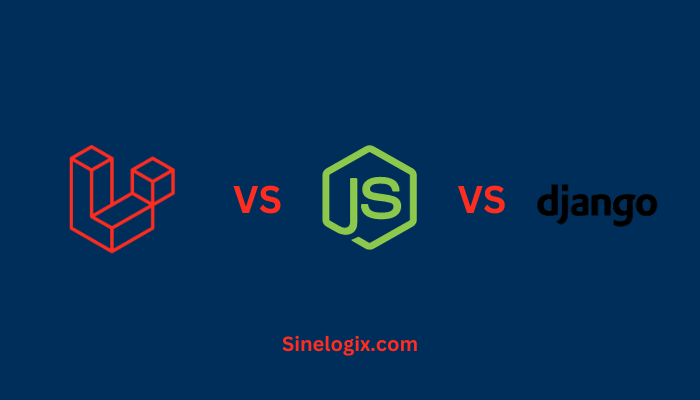In the world of web development, choosing the right framework is crucial for building robust and scalable applications. Laravel and Ruby on Rails (RoR) are two popular choices, each with its strengths and weaknesses.
In this article, we will delve into a detailed comparison of Laravel and Ruby on Rails, exploring various aspects to help you make an informed decision.
1. Overview
Laravel
Laravel, a PHP web application framework, has gained widespread popularity for its elegant syntax and developer-friendly features. It follows the MVC (Model-View-Controller) architectural pattern and emphasizes convention over configuration.
Ruby on Rails (RoR)
Ruby on Rails, often referred to as Rails, is a full-stack web application framework written in Ruby. It also adheres to the MVC pattern and focuses on the principle of convention over configuration, aiming to reduce the amount of code needed for development.
2. Language and Syntax
Laravel
Laravel uses PHP, a widely-used server-side scripting language known for its simplicity and versatility. The framework’s syntax is clean and expressive, making it easy for developers to write readable and maintainable code.
Ruby on Rails
Ruby, a dynamic and object-oriented language, serves as the foundation for Rails. Its syntax is elegant and emphasizes developer productivity. Ruby on Rails advocates the DRY (Don’t Repeat Yourself) principle, reducing redundancy in code.
3. Learning Curve
Laravel
Laravel is known for its developer-friendly documentation and a relatively gentle learning curve. The framework provides expressive syntax and a variety of tools that simplify common tasks, making it accessible for developers of varying experience levels.
Ruby on Rails
Ruby on Rails, while promoting developer productivity, may have a steeper learning curve for beginners due to its extensive use of conventions. However, once mastered, developers can benefit from the framework’s efficiency and time-saving features.
4. Community and Ecosystem
Laravel
Laravel has a vibrant and active community that contributes to its ecosystem. The Laravel ecosystem includes a rich set of packages and extensions, facilitating the development process and enabling developers to leverage existing solutions.
Ruby on Rails
Ruby on Rails boasts a strong and mature community that has been instrumental in building a vast ecosystem. The RubyGems package manager simplifies the integration of third-party libraries, enhancing the framework’s capabilities.
5. Performance
Laravel
Laravel’s performance is commendable, with optimizations and improvements introduced in each new version. While it may not be as lightweight as some micro-frameworks, Laravel strikes a balance between performance and developer convenience.
Ruby on Rails
Ruby on Rails, known for its convention-driven development, may face performance challenges in certain scenarios. However, the framework’s community actively addresses these concerns, and improvements are continually made with each update.
6. Flexibility and Extensibility
Laravel
Laravel provides a high level of flexibility, allowing developers to choose components as needed. The framework’s modular nature and support for Composer packages make it easy to extend functionality while keeping the core lightweight.
Ruby on Rails
Ruby on Rails, with its convention-oriented approach, offers a structured environment that may limit flexibility. However, the framework’s emphasis on convention over configuration streamlines development, and extensions can be integrated through gems.
7. Database Support
Laravel
Laravel supports multiple database management systems, including MySQL, PostgreSQL, and SQLite. Eloquent, Laravel’s ORM (Object-Relational Mapping) system, simplifies database interactions and promotes code readability.
Ruby on Rails
Active Record, RoR’s built-in ORM, facilitates database interactions and supports a wide range of databases, including MySQL, PostgreSQL, and SQLite. Ruby on Rails emphasizes database conventions, making it easy to work with databases seamlessly.
8. Testing and Debugging
Laravel
Laravel supports PHPUnit for testing, making it easy for developers to write unit tests for their applications. The framework also provides convenient methods for testing HTTP requests, database interactions, and more. Laravel’s built-in testing tools contribute to creating robust and maintainable code.
Ruby on Rails
Ruby on Rails is known for its testing framework, RSpec, which emphasizes behavior-driven development (BDD). Rails encourages developers to write tests first, promoting a test-driven development (TDD) approach. The integrated testing tools in Rails, along with RSpec, provide a comprehensive solution for ensuring the reliability of your application.
9. Security
Laravel
Laravel places a strong emphasis on security, with features such as hashed and salted passwords, protection against SQL injection, and cross-site scripting (XSS) attacks. The framework also includes tools like Laravel Sanctum and Passport for handling API authentication securely. That’s why, for better security reasons business owners love to develop their site on Laravel with the help of our Laravel development services.
Ruby on Rails
Ruby on Rails adopts a secure-by-default philosophy, offering built-in protections against common web vulnerabilities. Features like parameterized queries and the use of secure development practices contribute to Rails’ reputation for building secure web applications.
10. Documentation
Laravel
Laravel is praised for its comprehensive and user-friendly documentation. The documentation covers every aspect of the framework, providing clear explanations, examples, and guides. This contributes to the ease with which developers can learn and master Laravel.
Ruby on Rails
Ruby on Rails also boasts well-documented resources, with guides, API documentation, and community-contributed tutorials. The Rails documentation is detailed and helps developers navigate the framework efficiently, making it a valuable resource for both beginners and experienced developers.
11. Community Support
Laravel
Laravel has a large and active community that actively participates in forums, discussions, and events. The community-driven support contributes to problem-solving, knowledge-sharing, and the continuous improvement of the Laravel framework.
Ruby on Rails
Ruby on Rails has a long-established and passionate community that has played a significant role in the framework’s evolution. The community support includes regular meetups, conferences, and online forums, providing a platform for developers to connect and collaborate.
12. Scalability
Laravel
Laravel is designed to scale with applications as they grow. With features like Eloquent ORM and a modular structure, Laravel provides a foundation for building scalable applications. Laravel’s flexibility allows developers to optimize performance as needed.
Ruby on Rails
Ruby on Rails is known for its scalability, having been used to build large-scale applications like Twitter and GitHub. The framework’s convention-based structure and the ability to integrate caching mechanisms contribute to its scalability.
13. Frontend Integration
Laravel
Laravel provides flexibility in terms of frontend integration. While it doesn’t dictate a specific frontend framework, it seamlessly works with popular JavaScript frameworks like Vue.js. Laravel Mix simplifies asset compilation and provides an elegant solution for managing frontend dependencies.
Ruby on Rails
Ruby on Rails comes with its own frontend framework, ActionView, and the asset pipeline for managing JavaScript and CSS assets. Rails encourages the use of its conventions for frontend development, offering a cohesive and integrated approach.
14. DevOps and Deployment
Laravel
Laravel applications can be deployed on various hosting environments, and Laravel Forge simplifies server provisioning and deployment. Laravel Envoyer facilitates zero-downtime deployment, making it easy for developers to manage the deployment lifecycle efficiently.
Ruby on Rails
Ruby on Rails follows a convention-based deployment approach. Tools like Capistrano automate deployment tasks, and platforms like Heroku provide seamless hosting options. Rails also supports containerization, allowing for deployment on Docker and Kubernetes.
15. Maintenance and Long-Term Support
Laravel
Laravel releases LTS (Long-Term Support) versions, ensuring that critical bug fixes and security updates are provided for an extended period. The LTS releases give developers confidence in the stability and long-term viability of Laravel applications.
Ruby on Rails
Ruby on Rails also emphasizes long-term stability with its maintenance releases. The Rails core team is dedicated to providing updates and security patches, allowing developers to maintain and upgrade their applications with confidence.
16. Global Adoption and Job Market
Laravel
Laravel has gained substantial global adoption and popularity, leading to an increasing demand for Laravel developers in the job market. The framework’s modern features and developer-friendly approach have contributed to its widespread use in various industries.
Ruby on Rails
Ruby on Rails has a well-established presence in the job market, with many companies relying on Rails for their web development needs. The framework’s reputation for productivity and developer happiness continues to attract businesses seeking skilled Ruby on Rails developers.
17. Industry Use Cases
Laravel
Laravel is often chosen for building a wide range of applications, including content management systems (CMS), e-commerce platforms, and enterprise solutions. Its versatility and robust features make it suitable for various industries.
Ruby on Rails
Ruby on Rails has been widely adopted in startups and established companies alike. It is known for its success in developing social networking platforms, marketplaces, and other web applications. The framework’s convention-driven approach accelerates development, making it a popular choice in the startup ecosystem.
Related Articles:
Conclusion
The decision between Laravel and Ruby on Rails should consider not only the technical aspects but also factors like frontend integration, deployment processes, long-term support, job market demand, and industry use cases.
Both frameworks offer unique strengths, and the choice ultimately depends on your project’s requirements, team expertise, and the broader context of your development ecosystem. As you weigh these additional aspects, you’ll be better equipped to make an informed decision that aligns with the goals of your web development project.




